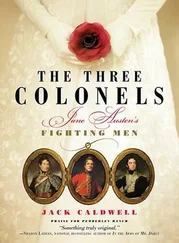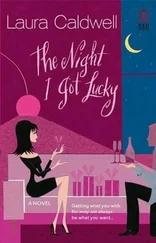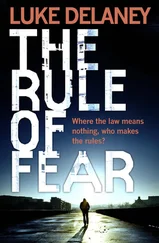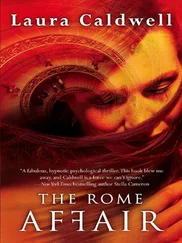When that hope fled, I honored my contract and became a software analyst. The job I got by solving a riddle, I took because I'd failed to solve another. Time in Texas passed more quickly than I can account for. The heat of summer there reminded me of nothing I'd known before, so I stayed. Katie and I wrote almost weekly during her last two years at Princeton, letters I began to wait for in the mail, even as they became less frequent. The last time I saw her was during a trip to New York to celebrate my twenty-sixth birthday. By the end of it, I think even Charlie could sense that time had come between Katie and me. As we walked through Prospect Park in the autumn sun, near the Brooklyn gallery where Katie worked, I began to understand that the things we once cherished had remained behind us at Princeton, and that the future had failed to replace them with a vision of things yet to come. Katie, I knew, had been hoping to begin something new that weekend, to chart a new course by a new set of stars. But the possibility of rebirth, which had buoyed my father for so long, and preserved his faith in his son, was an article of faith I'd slowly come to doubt. After that weekend, I began to fall out of Katie's life entirely. Shortly afterward, she called me at work for the last time. She knew the problem lay on my end of things, that mine were the letters that had become shorter and more distant. Her voice brought back an ache I hadn't expected. She told me I wouldn't be hearing from her again until I figured out for myself where we stood. Finally, she gave me her number at a new gallery, and told me to call when things were different.
Things were never different. Not for me, anyway. It wasn't long before my mother's new bookstore prospered, and she called me back to run the one in Columbus. I told her it was too difficult to leave Texas, now that I had roots. My sisters visited me, and Charlie with his family once, each leaving with advice on how I could get myself out of this slump, how I could get past this, whatever it was. The truth is, I've just been watching things change around me. The faces are younger every year, but I see the same formulations in all of them, reissued like money, new priests in old denominations. I remember that in the economics class I took with Brooks, we were taught that a single dollar, circulated long enough, could buy everything in the world-as if commerce were a candle that could never burn itself out. But I see that same dollar now in every exchange. The goods it buys, I no longer need. Most days, they hardly seem like goods at all. It was Paul who weathered time's passage the best. He always remained at my side, twenty-two and brilliant, like an incorruptible Dorian Gray. I believe it was when my engagement to an assistant professor at the University of Texas began to collapse-a woman who reminded me, I see now, of my father and mother and Katie all at once-that I took to calling Charlie every week, and thinking of Paul more and more. I wonder if he wasn't right to go out as he did. Striving. Young. While we, like Richard Curry, suffered the depredations of age, the disappointments of a promising youth. Death is the only escape from time, it seems to me now. Maybe Paul knew he was beating it all along: past, present, and any distinction in between. Even now, he seems to be leading me toward the most important conclusions of my life, I still consider him my closest friend.
Maybe, then, I'd made my decision before I ever received this package in the mail. Maybe the package was only the accelerant, like the alcohol Parker spilled on the club floor that night. Not even thirty, and I feel like an old man. The eve of our fifth reunion, and fifty years seem to have gone by.
Imagine, Paul said to me once, that the present is simply a reflection of the future. Imagine that we spend our whole lives staring into a mirror with the future at our backs, seeing it only in the reflection of what is here and now. Some of us would begin to believe that we could see tomorrow better by turning around to look at it directly. But those who did, without even realizing it, would've lost the key to the perspective they once had. For the one thing they would never be able to see in it was themselves. By turning their backs on the mirror, they would become the one element of the future their eyes could never find.
At the time, I thought Paul was parroting wisdom he'd gotten from Tart, which Taft had stolen from some Greek philosopher, the idea that we spend our lives backing into the future. What I couldn't see, because I was turned the wrong way, was that Paul meant it for me, about me. For years I've been determined to get on with my life by doggedly hunting down the future. It was what everyone told me I should do, to forget the past, to look forward, and in the end I did it better than anyone might've expected. When I arrived, though, I began to imagine that I knew exactly what my father felt, that I could identify with the way things seemed to turn against him with no explanation.
The fact is, I don't know the first thing about it. I turn around now, toward the present, and find that I've had nothing like the disappointments he experienced. In a business I knew nothing about, which never captured my heart, I've done well for myself. My superiors marvel that, after being the last man out of the office for five years, I have never taken a single day off. Not knowing any better, they mistake it for devotion.
Seeing that now, and comparing it to the way my father never did anything he didn't love, I come to a certain understanding. I don't know him any better than I ever did, but I know something about the position I've taken all these years, turning to stare at the future. It's a blind way to face life, a stance that lets the world pass you by, just as you think you're coming
to grips with it.
Tonight, long after leaving the office, I quit my job in Texas. I watched the sun go down over Austin, realizing it had never once snowed in all my time here, not in April, not even in midwinter. I've almost forgotten what it feels like to crawl into a bed so cold, you wished there was someone else in it. Texas is so hot, it helps you believe you're better off sleeping alone.
The package was waiting at my house when I came back from work today. A little brown mailing tube propped against my door, so unexpectedly light, I thought it might be empty. There was nothing on the outside but my house number and postal code, no return address, only a handwritten routing number in the left corner. I remembered a poster Charlie said he was sending me, an Eakins painting of a lone rower on the Schuylkill River. He'd been trying to convince me to move closer to Philadelphia, trying to convince me that it was the right city for a man like me. His son should see more of his godfather, he said. Charlie thought I was slipping away.
So I cracked the tube open, saving it for after the regular mail, the credit card offers and sweepstakes notifications and nothing that resembled a letter from Katie. In the glow of the television, the barrel seemed hollow, no poster from Charlie, no message. Only when I stuck my finger inside did I feel something thin curled around the circumference. One side of it felt glossy, the other side ragged. I pulled it out less gently than I should have, considering what it was.
Bottled inside the little package was an oil painting. I rolled it open, wondering for a second if Charlie had outdone himself and bought me an original. But when I saw the image on the canvas, I knew better. The style was much older than nineteenth-century American, much older than any century American. The subject was religious. It was European, from the first true age of painting.
It is difficult to explain the feeling of holding the past in your hands. The smell of that canvas was stronger and more complex than anything in Texas, where even wine and money are young. There was a trace of the same smell at Princeton, possibly at Ivy, certainly in the oldest rooms of Nassau Hall. But the odor was much more concentrated here, in this tiny cylinder, the smell of age, hardy and thick.
Читать дальше












